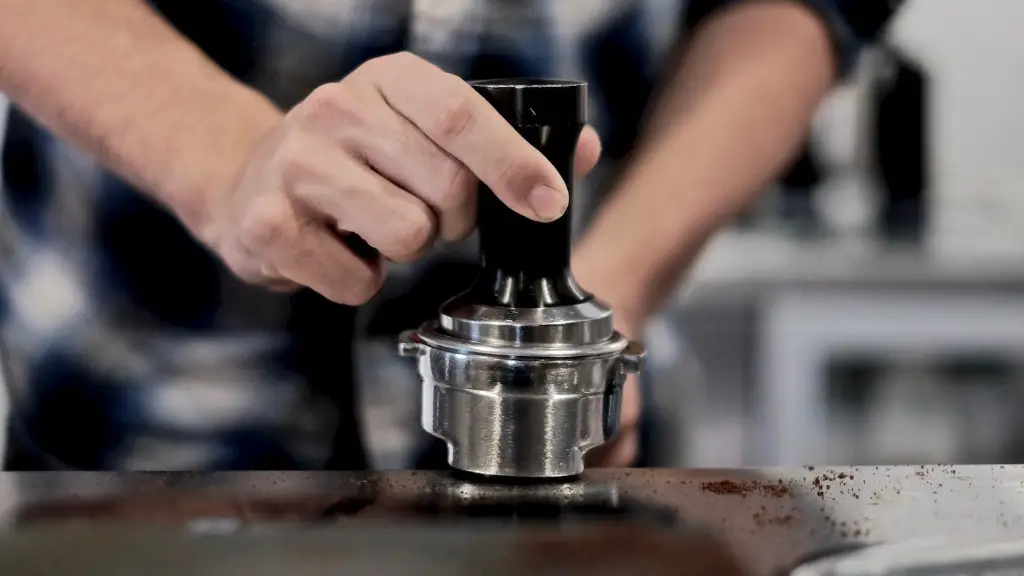Pregnant women often wonder if drinking coffee is safe during pregnancy. While coffee is generally safe, pregnant women should be aware that it can have some potential risks to their unborn babies.
Caffeine, the main component in coffee, can cross the placenta and reach the baby. High levels of caffeine in a pregnant woman’s body can cause her baby to be more active, which may lead to premature labor or low birth weight. Additionally, caffeine can also increase blood pressure and heart rate and cause dehydration.
Therefore, it is important for pregnant women to moderate their caffeine intake. The American College of Obstetricians and Gynecologists (ACOG) recommends that pregnant women consume no more than 200 milligrams of caffeine per day. That’s equivalent to about one to two 8-ounce cups of coffee.
How Much Caffeine Is Safe During Pregnancy
When pregnant, it is important to consider the amount of caffeine intake. Caffeine is a stimulant found in coffee, tea, soda, and other foods. Too much of it during pregnancy can lead to potential health risks for the mother and baby. The American College of Obstetricians and Gynecologists (ACOG) recommends limiting your caffeine intake to less than 200 milligrams per day. This is equivalent to one 12-ounce cup of brewed coffee or two 12-ounce cans of caffeinated soda.
It is also important to note that some studies have indicated that even moderate caffeine intake may increase the risk of miscarriage or low birth weight. Therefore, it is best to limit or avoid caffeine altogether during pregnancy if possible. Additionally, decaf coffee should be consumed in moderation as it may still contain small amounts of caffeine.
If you choose to drink coffee when pregnant, it is important to monitor your intake and be aware of any potential side effects such as heartburn or insomnia. It may be a good idea to discuss your caffeine consumption with your healthcare provider if needed. With careful monitoring and moderation, drinking coffee when pregnant can be safe for you and your baby.
Can You Drink Coffee When You’re Pregnant?
Coffee is a beloved beverage for many people, but pregnant women may be wondering if it’s safe to drink during pregnancy. The answer is – it depends. While some women can drink coffee in moderation while pregnant, some may need to avoid it altogether.
Caffeine is a stimulant and can cross the placenta to reach the baby, so it should be consumed in moderation. The American College of Obstetricians and Gynecologists (ACOG) recommends limiting caffeine intake to less than 200 mg per day, which is about one 12-ounce cup of regular coffee. Women who are especially sensitive to caffeine may need to limit their intake even further or avoid it altogether.
It’s important for pregnant women to consider other sources of caffeine when determining their daily intake, such as tea and soda. Additionally, avoiding foods and drinks that contain hidden sources of caffeine can help keep overall consumption down.
Pregnant women should talk with their healthcare provider if they have questions or concerns about drinking coffee while pregnant. Depending on individual circumstances, they may need to make modifications to their diet or lifestyle during pregnancy for the best health of both mother and baby.
Potential Side Effects of Drinking Coffee While Pregnant
Coffee is one of the most popular beverages around the world, but it is important to be aware of the potential risks associated with drinking coffee while pregnant. Studies have shown that caffeine can cross the placenta and enter the fetus’ bloodstream. This can lead to an increased risk for preterm labor and low birth weight babies. In addition, drinking coffee during pregnancy has been linked to an increased risk for miscarriage, stillbirth, and birth defects.
Therefore, it is important for pregnant women to consider their caffeine intake carefully. The American College of Obstetricians and Gynecologists (ACOG) recommends that pregnant women consume no more than 200 milligrams (mg) of caffeine per day. That amounts to one 12-ounce cup of regular coffee. It is also important to remember that some foods and beverages contain hidden sources of caffeine, such as chocolate, tea, energy drinks, and many over-the-counter medications.
Alternatives To Drinking Coffee During Pregnancy
Pregnant women often ask if it is safe to drink coffee during pregnancy. Unfortunately, there is no definitive answer as it depends on individual tolerance. However, there are several alternatives that pregnant women can turn to for a caffeine boost without the risks associated with drinking coffee. Herbal tea, such as chamomile and rooibos, are safe alternatives and can provide a subtle flavor boost. Decaffeinated and low-caffeine options of green tea, black tea, and other teas are also available.
Fruit juices are another option that contain natural caffeine and can provide an energy boost without any of the potential health risks associated with coffee. Some juices, such as cranberry and pomegranate, may offer additional benefits for pregnant women. In addition, there are many smoothie recipes that combine fruits and vegetables that are both delicious and nutritious for expecting mothers.
Finally, water is always a healthy choice for anyone – pregnant or not – as it helps keep the body hydrated. Adding lemon or cucumber slices to your water can help add flavor while providing a refreshing pick-me-up throughout the day. Pregnant women should avoid sugary drinks like soda whenever possible due to their high sugar content which could lead to unwanted weight gain during pregnancy.
These alternatives provide a variety of flavors and consistencies that can satisfy almost any craving while keeping you hydrated throughout the day!
Can Decaffeinated Coffee Be Consumed During Pregnancy?
Decaffeinated coffee can be consumed during pregnancy, although it is advisable to limit your caffeine intake to 200mg per day. Caffeine can affect the developing fetus, so it is best to avoid too much caffeine or any caffeinated beverages. Decaffeinated coffee still contains a small amount of caffeine, so pregnant women should not drink more than two cups of decaf coffee per day. Pregnant women should also avoid adding sugar or cream to their decaf coffee, as these can add extra calories and unhealthy ingredients to the beverage. Drinking decaf coffee in moderation may offer some health benefits for pregnant women such as increased energy and mental alertness. However, pregnant women should consult their doctor before consuming any type of caffeine.
Is It Safe to Drink Tea When You Are Expecting?
Pregnancy can be a time of changes in your diet and lifestyle. Many expecting mothers are concerned about the safety of drinking tea while pregnant. The good news is that drinking tea during pregnancy is generally considered safe for both you and your baby. However, it is important to know that some types of tea can contain caffeine, so it’s best to limit your consumption of them. Additionally, some herbal teas may contain herbs that are not safe for pregnant women and could potentially cause harm. It is best to consult with your doctor or midwife before consuming any type of tea while pregnant.
Regarding coffee, it should be consumed in moderation during pregnancy. Caffeine can cause dehydration and can interfere with the absorption of essential vitamins and minerals. Too much caffeine can also lead to an increased risk of miscarriage or preterm labor. Therefore, it is recommended that expecting mothers limit their intake of caffeinated beverages including coffee to no more than 200 mg per day.
In conclusion, drinking tea while pregnant is generally considered safe but should be done in moderation. Herbal teas should be avoided unless recommended by your doctor or midwife as they may contain herbs that are not safe for expecting mothers. Additionally, it’s important to limit the amount of caffeinated beverages such as coffee to no more than 200 mg per day to reduce the risk of potential complications related to caffeine consumption during pregnancy.
To sum it all up
Pregnant women should talk to their doctor before consuming coffee while pregnant. Caffeine intake should be limited, and the recommended maximum is 200 mg a day. Pregnant women should try to stick with decaffeinated coffee or limit their caffeine intake through other sources such as tea and chocolate. Additionally, pregnant women should avoid energy drinks as they are often high in caffeine. It is important that pregnant women make informed decisions about what to consume during pregnancy for the health of both mother and baby.





